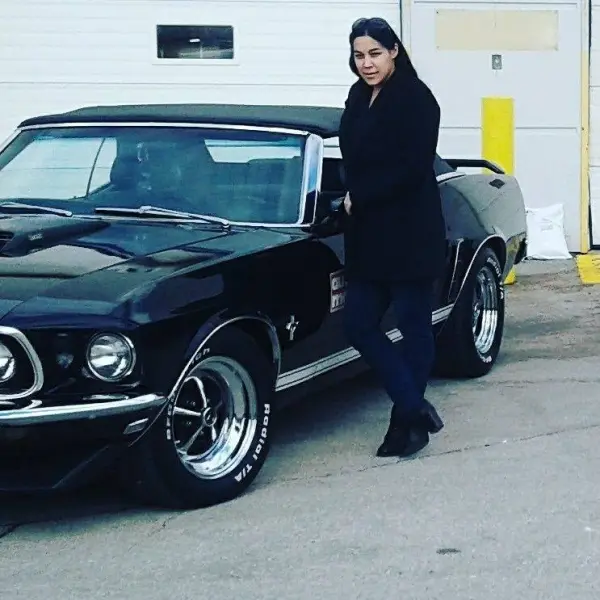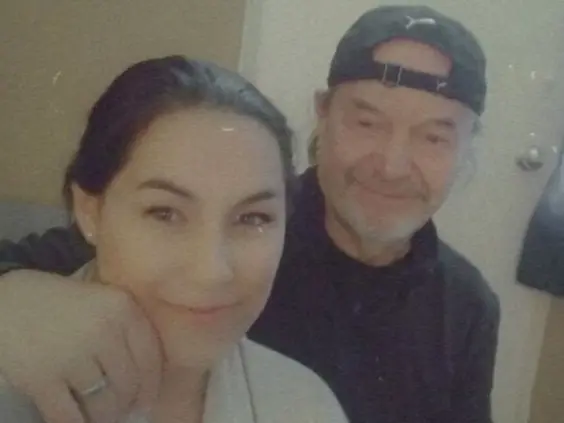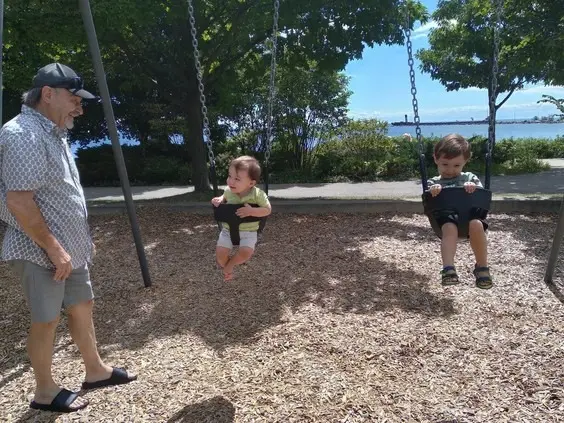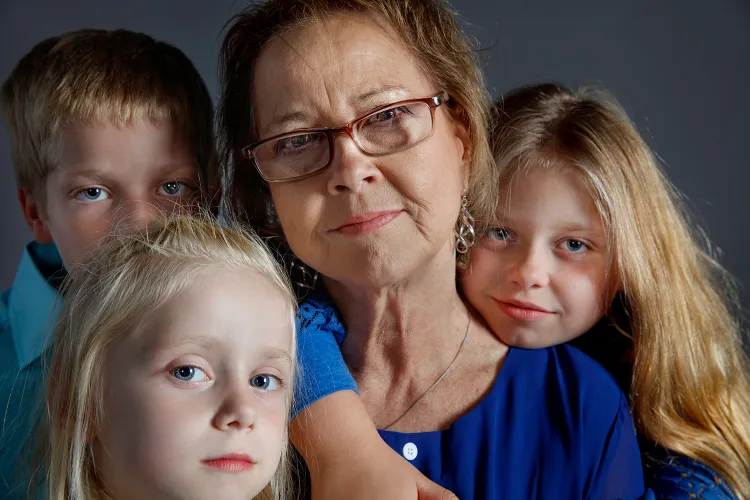A “Broken” Mother, a Family Devastated, and a Community Searching for Answers After a Young Mom Admits to Killing Her Two Sons Just Days After Her 72-Year-Old Husband’s Death
The story unfolding out of Ontario is one almost too painful for a community to fully grasp, a tragedy that has left neighbors, friends, and even seasoned investigators struggling to reconcile how a young mother with no previous history of violence could reach a point where she ended the lives of the two little boys she once protected. Yet inside a Toronto courtroom this week, 27-year-old Vanessa Collias stood shaking, crying so intensely she could barely lift her head, as she admitted to killing her sons, 5-year-old Yiannis and 4-year-old Dimitri. The admission came nearly one year after a series of events that began with the death of her decades-older husband, 72-year-old Costa Collias, a loss that prosecutors said left her “emotionally fractured in ways she could not contain.”

The details of the case, reported extensively by the Toronto Star and other local outlets, paint a haunting picture of a perfect storm of grief, fear, and emotional collapse. According to the agreed-upon statement of facts presented in court, Vanessa had been the primary caregiver not only to her young children, but also to Costa, who had been fighting an aggressive form of leukemia. His condition had worsened rapidly in late 2023, and for months, Vanessa reportedly juggled caring for her husband through the final stages of illness while raising two energetic little boys who relied entirely on her.

Those close to the family described Costa as a devoted father and a man deeply aware of the age gap between himself and his sons. Friends recalled how he tried to stay active with them—holding their hands at festivals, taking them to the park, pushing them on swings—knowing that his time was limited. The images circulating publicly now, captured from family outings, show him smiling gently as the boys cling to his hands on busy streets, and laughing softly as he watched them play. To those who knew them, the family never seemed fractured; if anything, they were tightly bonded, with Vanessa serving as the emotional anchor and bridge between generations.
But behind closed doors, the emotional strain had been building. Records show that Costa passed away in early December 2023, just nine days before the boys were killed. Vanessa, whose voice broke into uncontrollable sobs as the timeline was read aloud in court, reportedly told investigators later that she felt as though “the world had ended twice,” first when her husband died, and then as she realized she was utterly alone with two grieving children.

Court documents noted that in the days after Costa’s death, family members attempted to support Vanessa, but she became increasingly withdrawn. She spoke of feeling spiritually unmoored, terrified of failing the boys, and overwhelmed by a sense of impending collapse. Her statements to police, while heartbreaking, were repeated consistently across interviews: she believed that if she could not protect her children emotionally from the devastation they were feeling, then she should “take them to a place where they could be together again, forever.”
Prosecutors emphasized repeatedly that this was not an excuse—only an explanation of her state of mind. Even with her depression deepening and her thinking distorting under pressure, the legal system recognizes her actions as intentional and criminal. But the nuance mattered in court, because this case has forced an entire community to confront the fine, painful line between grief, desperation, and irreversible tragedy.

On the night of the killings, investigators determined that Vanessa acted alone and without warning. The boys were found inside the family’s home, and officers arriving at the scene described a quiet, chilling stillness that contrasted sharply with the usual playfulness of a house with young children. Vanessa herself had attempted to jump from the home’s balcony, allegedly with the intention of joining her husband and sons “in Heaven,” but survived with injuries that required hospitalization.
Her survival has since become one of the most emotionally complicated elements of the case. Some members of the public—especially parents—have struggled to understand how a mother could harm her own young children. Others, particularly mental-health professionals and advocates, have urged people to consider the circumstances: a young woman in an extreme state of psychological shock, freshly grieving the death of her spouse, isolated, overwhelmed, and losing her grip on reality. They argue that it is possible to condemn the act without denying the powerful, catastrophic mental-health crisis that preceded it.

During this week’s plea hearing, the courtroom atmosphere was almost suffocating in its heaviness. Vanessa, dressed in black, stood trembling as her lawyer read portions of her statement aloud. She apologized repeatedly through tears, at one point clutching her stomach as though the grief were physically crushing her. “I loved them more than anything,” she managed to say, her voice almost too faint to hear. “I thought … I thought I was saving them.”
Family members of Costa sat in the gallery, many crying quietly as they listened. They have been vocal in their belief that Costa’s death deeply destabilized Vanessa, and while they have not excused her actions, they have asked the public to avoid turning her into a caricature of evil. They described her as a loving mother who adored her sons, cooked their favorite meals, read them bedtime stories, and rarely spent a moment away from them. To them, the Vanessa they knew was compassionate, protective, and gentle—a woman who broke under pressure rather than someone inherently monstrous.
“Costa loved her,” one relative reportedly told local media. “He knew she was young. He knew life was hard on her. He believed she did her best for their boys.”
Still, prosecutors stressed that even the deepest pain cannot erase accountability. The plea deal, which Vanessa accepted, acknowledges her guilt and ensures she will face significant sentencing. Sentencing arguments will come next, with mental-health evaluations expected to play a defining role. Legal experts who have followed the case say the court will likely weigh two complex realities: that Vanessa carried out an unimaginable act, and that she did so in a compromised psychological state that must be evaluated through medical, not just criminal, lenses.
Cases like this are rare but not unheard of. Parental filicide—when a parent kills their child—is one of the most emotionally charged and widely misunderstood crimes. Studies show that when mothers are responsible, the circumstances often involve mental-health crises, postpartum disorders, overwhelming stress, or catastrophic life changes. None of this excuses the acts, but it offers a framework for understanding them, which is crucial in preventing similar tragedies in the future.
Mental-health advocates say Vanessa’s case underscores the importance of accessible, immediate psychological support in moments of acute grief. Losing a partner is one of the most emotionally destabilizing experiences a person can endure. Combining that with the responsibility of caring for small children, the exhaustion of months of caregiving for a dying spouse, and the sudden collapse of a family’s structure can create a volatile emotional environment. Yet, many people—especially young mothers—feel pressured to maintain composure, to “stay strong,” to keep functioning even when their internal world is falling apart.
In the months since the tragedy, the community has held vigils for Yiannis and Dimitri, remembering them as playful, bright, and deeply loved. Their teachers described them as curious and affectionate. One neighbor recalled how the boys would run up and down the sidewalk with toy trucks, shouting for their father to watch. Another remembered seeing Vanessa adjusting their hats on cold mornings, crouching down to zip their jackets before walking them to school. These memories have become both a comfort and a source of anguish for those struggling to understand how such love could coexist with such devastating actions.
The legal process will continue, but for many, justice in its most literal sense feels almost impossible to define in a case so steeped in grief. Two little boys are gone. A father is gone. And a mother—once the center of their world—now stands at the heart of a tragedy that will follow her for the rest of her life.
As the courtroom emptied after the plea was entered, Vanessa reportedly remained seated for several minutes, head bowed, face buried in her hands. When officers finally approached to escort her out, she whispered something, though it was unclear whether she intended anyone to hear it. One officer later described her as “completely shattered,” a woman fully aware that the life she once had—full of color, noise, small hands reaching for hers—was gone forever.
Cases like this force society to confront uncomfortable truths about mental health, untreated grief, and the desperate moments people experience behind closed doors. And while the legal system will deliver its verdict, the emotional fallout of this tragedy will linger in the community for years.
In the end, two children lost their lives, a father lost his battle with illness, and a young mother lost herself in the collapse of everything she loved. There are no easy answers, no simple narratives to soothe the pain. There is only the hope that understanding what happened—even when it is almost too painful to look at directly—might prevent another family from facing a similar nightmare.



